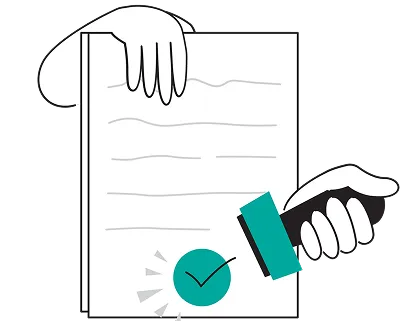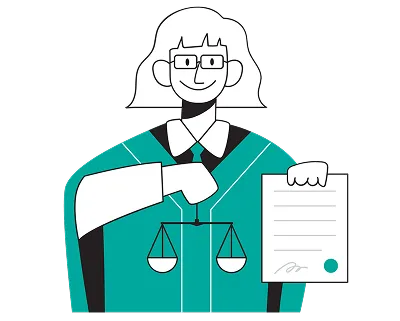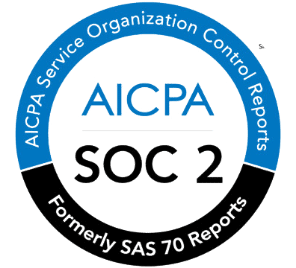As a financial planner, you often guide clients through critical decisions that impact their long-term security and peace of mind.
Estate planning is no exception.
- For many financial planning clients, creating estate documents and an estate plan is a high priority.
- Whether or not they choose to have their legal documents drafted by an experienced attorney or DIY online software will be a big decision in their planning process.
- Knowing the questions to ask each client about their estate plan needs and goals will help you steer them in the right direction when it comes time to draft their estate planning paperwork.
- Question 1: What Are Your Goals for Estate Planning?
- Question 2: How Complicated Is Your Financial Situation?
- Question #3: Do You Have Dependents or Unique Family Dynamics?
- Question #4: Are You Comfortable Navigating Legal Documents on Your Own?
- Question #5: Have You Considered the State-Specific Laws That Apply?
- Question #6: What Is Your Budget for Estate Planning?
- Question #7: Do You Plan to Update Your Estate Plan Regularly?
- Question #8: Do You Worry About Errors, Discrepancies, or Inaccuracies?
- Holistiplan: Helping You Guide Every Client to Make Their Best Decision
Estate planning — just like other types of financial planning– is typically seen as a necessary part of a client’s overall financial strategy and future preparedness.
Today, many clients are considering online estate planning services to help them create the documents that traditionally have been drafted by an estate planning attorney.
By choosing this route, they are often able to save some time and money in the process.
But — is estate planning the best choice for your clients? Are they considering every factor that could impact the effectiveness and security of their estate plan?
While online estate planning services offer convenience and affordability, they may not address complex financial situations, unique family dynamics, or state-specific legal requirements.
As a financial planner, it’s essential to help your clients weigh the pros and cons of DIY estate planning software.
Whether they opt for online tools or work with an estate attorney, your expertise can help them make informed decisions that integrate seamlessly into their overall financial strategy.
Let’s explore 8 essential questions you can ask to determine whether DIY estate planning software is the right choice for your clients.
Question 1: What Are Your Goals for Estate Planning?
Start by understanding what your client hopes to achieve with their estate plan. Are they focused on safeguarding assets, ensuring smooth inheritance processes, or minimizing tax implications?
Clients with straightforward goals, like drafting a simple will, may find DIY software sufficient.
However, those with complex needs—such as managing multiple trusts or navigating intricate estate tax laws—might benefit from the expertise of an estate attorney.

Let’s look at some of the most common documents that are included in a comprehensive estate plan:
- Will: Also sometimes known as a “last will,” a will is a legal document that outlines how a person’s assets should be distributed after their death and names guardians for minor children, if applicable.
- Living Trust: A trust is created during a person’s lifetime to hold and manage assets, often used to avoid probate court and simplify asset distribution.
- Power of Attorney (POA): This legal document puts a specific person in charge of making legal decisions and taking care of financial tasks on behalf of the person who created it, usually in the event of incapacity and/or the need for final arrangements upon death.
- Healthcare Power of Attorney: A specific type of POA that designates someone to make medical care decisions on behalf of an individual if they are unable to do so.
- Advance Medical Directive: A document that outlines a person’s healthcare preferences, including end-of-life care, in case they cannot communicate their wishes themselves.
- Beneficiary Designations: Forms that specify who will receive assets like life insurance policies, retirement accounts, and payable-on-death accounts, bypassing the will.
- Guardianship Designation: A provision that names a guardian for minor children or dependents if the parent or caretaker is no longer able to provide care.
- Trustee Appointment: A document naming the person or entity responsible for managing a trust’s assets and ensuring its terms are carried out.
- Letter of Instruction: A non-legally binding document that provides additional guidance to family or executors, such as details about accounts, passwords, and funeral preferences.
- HIPAA Release: A form authorizing designated individuals to access a person’s medical information, ensuring seamless communication with healthcare providers.
By looking more carefully at each of these documents and how they fit into your client’s estate plan, you can help determine whether DIY estate planning software aligns with their needs — or if a more personalized approach with legal assistance from a law firm would better serve their objectives.
Efficiency Meets Value in Financial Planning
Holistiplan bridges the gap between speed and quality, helping advisors like you deliver greater value to every client
Question 2: How Complicated Is Your Financial Situation?

Encourage clients to assess the complexity of their finances.
Do they own multiple properties, investments, or businesses? Are they the beneficiaries of a trust or involved in managing any inherited wealth? Complex financial situations often require more detailed estate planning that goes beyond the capabilities of DIY software.
Here are a few other factors for them to consider:
- High-Value Assets: Clients with significant assets or diversified investments may benefit from strategies to protect their wealth and minimize taxes.
- Business Ownership: If they own one or more businesses, succession planning and tax-efficient structures are critical components best handled with professional legal advice.
- Trusts and Estate Transfers: Those who are beneficiaries or grantors of trusts may need assistance navigating the legal and financial intricacies involved.
- International Assets: Clients with overseas properties or accounts might face unique tax and legal challenges that require specialized expertise.
Helping your clients evaluate the complexity of their financial situation allows them to make an informed choice about whether online will makers can meet their needs or having an attorney in fact draft their documents provides the thoroughness and personalized guidance they require.
For clients with straightforward estates, online will makers might be sufficient, offering convenience and cost savings.
Question #3: Do You Have Dependents or Unique Family Dynamics?
No two families are exactly the same and what works for one may not work for another.
Talk to your client about their family dynamics and find out if there would be a situation that calls for a slightly more hands-on will based estate plan than drafting their documents online.
For example:
- Ask if the client has dependents: Determine whether they have children, elderly parents, or other dependents who may need specific provisions in the estate plan.
- Inquire about unique family circumstances: Explore any nontraditional or complex family dynamics, such as blended families or estranged relatives, that could complicate inheritance decisions.
- Discuss beneficiaries with special needs: Identify if any beneficiaries require specialized planning, such as establishing special needs trusts or other tailored strategies.

Attorney assistance is often needed when a person has intricate family dynamics or dependents requiring specialized care in their estate plan.
Question #4: Are You Comfortable Navigating Legal Documents on Your Own?
One of the biggest key differences between online will creation and working with an attorney is the level of guidance and expertise available throughout the process.
Online will creation relies on user input and navigation, offering limited support for interpreting legal jargon or addressing complex scenarios.

In contrast, working with an attorney ensures professional oversight, personalized advice, and tailored solutions to fit the client’s unique needs.
Gauge your client’s familiarity with legal language and processes.
Estate planning documents like wills and trusts involve technical details as well as practical and legal information that can often be overwhelming.
Some examples of this include:
- Complex Terminology: Estate planning documents often contain legal jargon such as “living will,” “revocable living trust,” “power of attorney,” “health care directive,” “legally binding,” and “fiduciary responsibilities,” — all of which can be confusing without proper context.
- Tax Implications: Planning for estate taxes or gift taxes requires a clear understanding of financial regulations that may not be straightforward.
- Accuracy in Execution: A single error—such as omitting a critical detail or using the wrong template—can invalidate the entire document, potentially causing disputes or delays.
While some software provides user-friendly guidance, clients who feel unsure about interpreting legal terms may prefer the clarity and confidence an attorney can offer.
Question #5: Have You Considered the State-Specific Laws That Apply?
Different state laws determine how estate planning documents must be executed, interpreted, and enforced.
For example:
Witness and Notarization Requirements:
Each state has specific requirements for the execution of a will, including the number of witnesses needed and whether notarization is required.
For example, some states mandate two witnesses who are impartial to the contents of the will, while others allow notarization as an alternative for self-proving wills. Ensuring compliance with these requirements is critical to avoid challenges during probate.

Spousal and Inheritance Rights:
States differ widely in how assets are distributed to spouses and heirs, especially in cases where the deceased did not leave a will (intestate succession).
For instance, community property states like California treat marital assets differently than common-law states. These distinctions significantly impact estate plans and may require additional legal strategies to align with the client’s wishes.

Tax Implications:
Certain states impose estate taxes or inheritance taxes that beneficiaries must account for.
For example, Maryland levies both types of taxes, while others like Florida have no estate or inheritance taxes. Understanding these implications can help clients plan to minimize tax liabilities and protect their assets for future generations.

Trust Laws:
States regulate the formation, administration, and termination of trusts, influencing how trust assets are managed and transferred.
For instance, some states are more favorable for setting up dynasty trusts due to their lenient rules on perpetuity laws. Additionally, trust laws may affect how creditors can access trust assets, adding another layer of complexity for clients managing significant wealth.

DIY software may use generic templates that don’t account for these differences, potentially leading to invalid or incomplete documents.
Collaborating with an attorney ensures compliance with state-specific laws, providing your clients with peace of mind and legal security.
Elevate Your Practice with Holistiplan
Holistiplan is trusted by thousands of advisors to deliver faster, more valuable financial plans. Start your free 7-day trial and see the difference for yourself
Get Started TodayQuestion #6: What Is Your Budget for Estate Planning?
Discuss your client’s financial constraints and the costs associated with both DIY software and legal services.
For clients seeking affordability, DIY software may seem like a better option financially, but remind them to think about the following:
- Potential Hidden Costs: While DIY software may have a lower upfront cost, errors or omissions in documents could result in expensive legal disputes or revisions down the line.
- Time Investment: Clients should consider the time it takes to research, fill out, and ensure the accuracy of documents when using DIY tools, as compared to delegating the process to an attorney. Having unlimited attorney support may be priceless as well.
- Complex Financial Situations: If their estate involves complicated assets, trusts, or tax planning, hiring an attorney could save money in the long term by preventing costly mistakes or missteps.
- Custom Solutions: Attorney documents can be personalized and valuable for clients who value personalized advice and strategies tailored to their own unique needs.
- Future Updates: Remind clients that their estate plan will need updates over time due to changes in laws or personal circumstances. Attorney-drafted plans often include ongoing and/or unlimited customer support to make these updates smoother, whereas DIY tools may charge additional fees for revisions.
Helping clients weigh these factors ensures they make informed decisions throughout the estate planning process that align with both their financial situation and long-term goals.
Question #7: Do You Plan to Update Your Estate Plan Regularly?

The estate planning process isn’t static—it evolves as life continues to change for all of us.
Before a client chooses to use an online estate planning service, ask them if they anticipate needing updates to their documents in the future. If so, using an experienced estate planning attorney may be the better direction to go.
Here are some life events that often happen that make it necessary to update estate planning documents in the future:
- Marriage or Divorce: These significant life changes often require updates to beneficiary designations, wills, and other documents.
- Birth or Adoption of Children: Clients may want to name guardians or set up trusts for their children to ensure their financial future. As more children join the family, previous arrangements for their care may need to be altered.
- Passing of a Loved One: The death of a beneficiary or executor may necessitate changes to the estate plan.
- Changes in Assets: Acquiring or selling property, delving into digital assets or other investments, starting a business, or receiving an inheritance could require adjustments to reflect the new financial landscape.
- Relocation: Moving to a different state or country may introduce new legal requirements or tax implications that need to be addressed.
- Health Changes: A diagnosis or medical condition might prompt updates to healthcare directives, insurance and benefits paperwork, powers of attorney, or long-term care plans.
- Tax Law Changes: Evolving tax laws can impact estate plans, requiring revisions to maximize benefits and minimize liabilities.
By guiding clients to consider these potential updates, you can help them determine whether DIY estate planning software can accommodate their ongoing needs or if working with an estate planning attorney for regular updates might be a better option.
Question #8: Do You Worry About Errors, Discrepancies, or Inaccuracies?
Even the most detail-oriented person may find themselves leaving our important details or misinterpreting legal jargon when drafting estate planning documents.
DIY estate planning software relies heavily on users to input accurate information, and mistakes can be costly — now as well as in the future.
For example:
- Missed Legal Requirements: Failing to meet state-specific laws for notarization or witness signatures can result in documents being deemed invalid.
- Incorrect Beneficiary Designations: Mistakes in naming beneficiaries or allocation of assets can lead to disputes among heirs or unintended distributions.
- Incomplete Documentation: Omitting essential documents, such as powers of attorney or healthcare directives, may leave critical decisions unaddressed.
- Tax Oversights: Errors in planning for estate or inheritance taxes can cause financial burdens for heirs that could have been avoided with proper legal guidance.
- Ambiguities in Wording: Vague or unclear language in wills or trusts may lead to misinterpretations and legal challenges.
For clients who worry about getting every detail right, working with an estate attorney ensures detailed explanations will be provided and uncertainties eliminated. Attorneys can also identify potential risks and offer personalized solutions that safeguard the estate plan’s integrity.
Holistiplan: Helping You Guide Every Client to Make Their Best Decision
At Holistiplan, we are committed to helping you help your clients with every step of the tax planning and estate planning process.
Our innovative platform empowers you to provide personalized, efficient, and effective solutions tailored to each client’s unique needs.
With tools that simplify complex planning scenarios and actionable insights to enhance decision-making, Holistiplan ensures you have the resources to guide your clients confidently.

Here are some benefits that Holistiplan brings to the estate planning table:
Estate Report:
Our intuitive layout offers clients a comprehensive overview of their estate planning essentials, including wills, living trusts, beneficiaries, powers of attorney, advanced medical directives, and other non-probate arrangements—all consolidated in one accessible place.
This streamlined format makes it simple to share crucial information with estate attorneys, heirs, or other trusted advisors, ensuring everyone stays informed.
Asset Diagram:
With expertly designed asset diagrams, clients gain a clear, visual understanding of their asset distribution.
The interactive flowchart lets them adjust values dynamically, revealing the ripple effects on various assets such as real estate, bank accounts, IRAs, and investments. This feature empowers clients to make informed decisions with ease.
Beneficiary Review:
Beneficiary designations often change throughout a lifetime, and our software simplifies the process of keeping them up to date.
Clients can effortlessly update information and receive real-time summaries of transfer-on-death assets, ensuring their estate plans remain current and accurate.
By partnering with Holistiplan, you’re not just offering a service—you’re delivering peace of mind and building trust that lasts a lifetime. Let us help you elevate your practice and make a meaningful difference for every client you serve.
Together, we can create brighter financial futures
Built by CFP® Professionals,
for CFP® Professionals
Holistiplan was designed by experienced advisors Roger and Kevin to streamline your financial planning process. Achieve more for your clients in less time
Start Your Free 7-Day Trial




